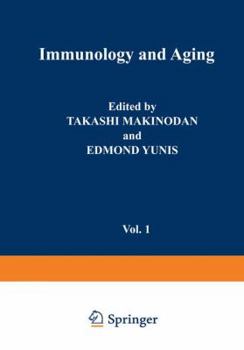Immunology and Aging
Select Format
Select Condition 
Book Overview
In the classic sense, immunity is the ability of an organism to resist disease. On the one hand, we must distinguish between age and disease; on the other hand, the interaction between them is of considerable theoretical and practical interest. To the gerontologic research community, therefore, immunity also becomes the ability of an organism to resist age. Were the immune and other protective systems of the body able to maintain themselves over the course of time, and if there were no degradation related to age, the everyday loss of energy and vitality that occurs in the lives of older people as a consequence of viruses, arthritis, and other debilitating circumstances would be greatly lessened. The objective of gerontologists is not just to extend the life span but rather to improve the vigor, health, and quality oflife. To date, we have not developed a single index to measure immunity that is of use clinically in the evaluation of older people and of their immunologic compe- tence. It may not be surprising that just such a clinical index may be available in the not-too-distant future. We can also look forward to the assembling of a greater body of information explaining how and why the immune system fails with age while, paradoxically, the incidence of autoimmune diseases increases with age. It is this latter phenomenon that may playa part in a wide range of chronic diseases from rheumatoid arthritis to senile dementia.
Format:Paperback
Language:English
ISBN:1468425439
ISBN13:9781468425437
Release Date:March 2012
Publisher:Springer
Length:208 Pages
Weight:0.89 lbs.
Dimensions:0.5" x 7.0" x 10.0"
Customer Reviews
0 rating





